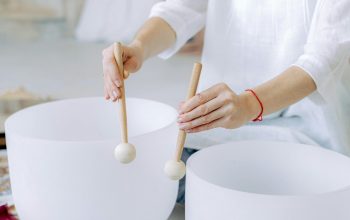My juvenile idiopathic arthritis was diagnosed when I was only four years old and in kindergarten. At the time I was not yet able to fully recognise when something was not well with my body.
I do not have any memory of feeling any sort of pain when I was little or of not being able to do certain activities. My parents never noticed any issue with my mobility.
It all started when my kindergarten teacher noticed I could not sit with my legs crossed. She decided to take me to the school doctor who immediately called my parents to tell them to take me to the hospital.
At the time, in 2004, research into autoimmune diseases such as juvenile arthritis was scarce. We now know it affects approximately one in 1000 children.
The paediatrician suggested that my parents take me to one of the few clinics in my city, Milan, Italy, where there was a rheumatologist who specialised in this type of arthritis.
I was immediately hospitalised. I have memories of me being there for some three weeks during which I went through all the check-ups and injections to remove synovial fluid from my joints.
My right leg has always been the one that is most affected, it started with my ankle, before spreading to my knee and, when the flare ups were bad, the left knee would be impacted too.
As a young child, I simply could not do the all the normal activities that kids do, no cycling, no running, no jumping…
After getting used to living life with it, I got better and other than having to go to my primary school nurse to take my dreadful syrup, I was living a normal childhood.
It was when I was in 10 years old that I had my second flare up. Initially it was thought to be tendonitis, only to then find out it was my joints acting up once again after years of remission.
This autoimmune disease has taken away moments of my life, from not being able to join in in PE classes and having to do physiotherapy instead, to not cooking the Christmas cookies with my friends because I had to get fluid extracted from my knee.
These events have been followed by many years of remission and flare ups, injections to repress inflammation and then again years with no symptoms.
I don’t know if a full recovery could ever be possible. I have learnt that a flareup can appear at any time, but I have now also understood how to live with this, aware that I cannot do everything and sometimes I have to say “no” to things.
After my latest flare up, which messed up my ankle bones and limited greatly any physical activity, I started thinking how things considered ‘normal’ by others are often taken for granted.
I cannot stop myself from thinking how lucky people are when I see someone just dancing, running, or simply wearing heels.
Fatigue is one of the main side effects I live with. After walking for a long time or doing something physical my body is just tired, but not in a normal way, it is pure fatigue and laying down is the only way to cope with it.
Often, I have been told I am lazy for not wanting to go out or not wanting to get out of bed, but the reality is that my body is simply not able to process vertain movements.
Rheumatoid arthritis can present itself in different ways, so it is important to get regular check-ups to make sure it has not affected other functions such as your sight.
Autoimmune diseases can be tough at times and force you to adapt your life to the condition you have but, research has advanced and there is much more awareness now than when I was younger, which gives me hope for a brighter future for everyone who has one.
The NHS describes autoimmune diseases as your immune system, which is supposed to protect you from harmful things, developing a problem and attacking your own healthy tissues and organs.
There are more than 100 known autoimmune diseases including:
- Psoriasis
- Multiple Sclerosis
- Rheumatoid arthritis
- Crohn’s Disease
- Type 1 Diabetes
- Inflammatory Bowel Disease
Women are typically more prone to be affected. The reason why the immune system malfunctions is still unknown and prevention for autoimmune diseases is not possible, although having a healthy lifestyle is highly recommended.
Cures for autoimmune diseases are still not available and the knowledge behind them is still low compared to how many people suffer with one.
March is Autoimmune Disease Awareness Month and is important for people like me since more research can help making our lives more ‘normal’.
If you are someone affected by an autoimmune disease, there are organisations that offer information and support.
Aims Charity , offers people with autoimmune diseases health advice and support.
Asa Foundation helps people understand the cause of them and promotes early detection.
More general information regarding Rheumatoid Arthritis can be found on the NHS website.





